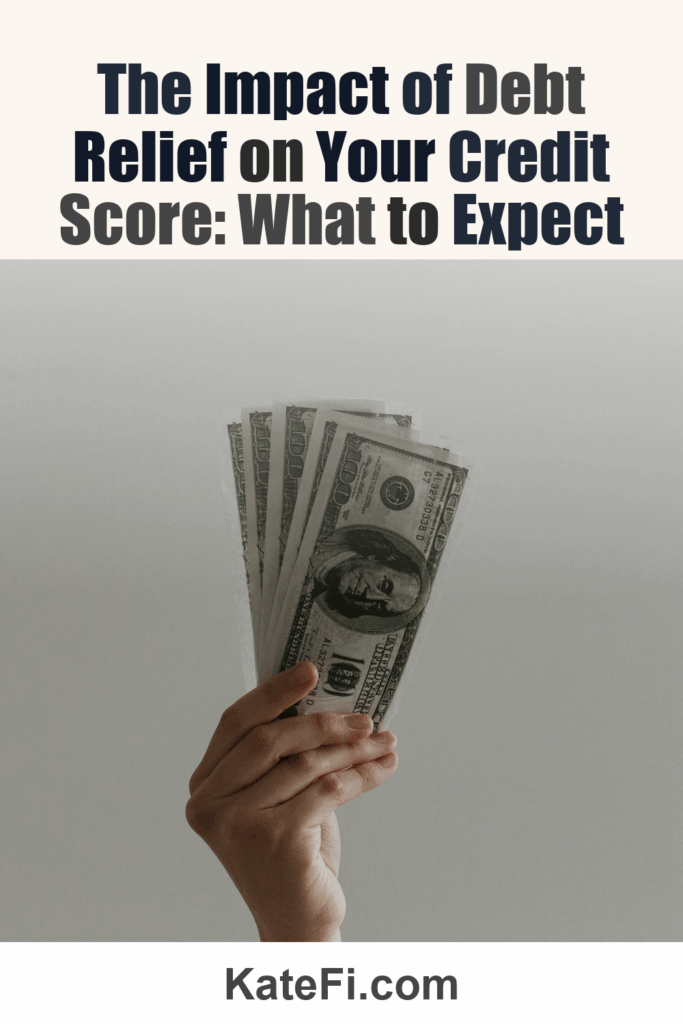What You’ll Learn on the Call
- Estimated timeline and monthly payment range
- How credit may be affected in the short term
- What documents to gather to move faster
Love our content? Show your support by following us — pretty please!🥺
FOLLOW ON PINTEREST
Hi! I’m Kate, the face behind KateFi.com—a blog all about making life easier and more affordable.
Not available in IL, KS, OR, TN, UT, WV.
4 Signs You’re Overwhelmed by Debt: Time to Seek Professional Help
Dealing with debt can feel like navigating a maze with no exit. You might find yourself questioning how you got there, feeling overwhelmed by payments, or unsure of which path to take. Whether you’re juggling credit cards, loans, or other financial obligations, it’s essential to recognize when it’s time to seek professional help. This article will explore the signs of being overwhelmed by debt, comparing different relief options, and helping you decide which is right for you.
Recognizing the Signs of Overwhelming Debt
#### 1. Your Payments are Late or Missing
Are you constantly scrambling to make payments on time? If late fees have become the norm, it might be time to acknowledge the severity of your financial situation. Late payments not only add stress but also can lead to higher interest rates and damage your credit score.
#### 2. You’re Relying on Credit for Essentials
Using credit cards to cover necessary expenses—like groceries or gas—signals that your financial situation is unsustainable. If you find yourself in a cycle of using credit just to get by, it may be a sign to seek help before the debt spirals further out of control.
#### 3. You Feel Anxious or Depressed About Your Finances
Mental health is closely tied to financial well-being. If debt keeps you up at night or contributes to feelings of anxiety and hopelessness, it’s essential to recognize these emotions as signs that your financial situation may be overwhelming. Professional guidance can provide relief not just financially but mentally as well.
#### 4. You’re Considering Taking on More Debt
If you’re contemplating new loans or credit to pay off existing debt, it’s a clear indication that your current financial plan isn’t working. This method often leads to a worsening cycle of debt, rather than a solution.
The Need for Professional Help
Once you’ve identified these signs, it may be time to consider professional debt relief options. Let’s break down three common strategies: Debt Settlement, Debt Consolidation, and Debt Management Plans (DMP).
| Debt Relief Option | Pros | Cons | Fees | Timeline |
|---|---|---|---|---|
| Debt Settlement | Potentially reduce total debt owed | Can significantly affect credit score | Varies, usually a percentage of settled debt | 3-5 years |
| Debt Consolidation | One monthly payment; simplifies finances | May extend repayment term, leading to more interest | Fees may apply for loans or balance transfers | Usually a few weeks to obtain loan |
| Debt Management Plan | Structured payments; often lower interest | Requires discipline; less flexibility | Possible setup fee; monthly fees | 3-5 years |
1. Debt Settlement: Is It Right for You?
Debt settlement involves negotiating with creditors to pay less than you owe, often a lump sum payment. This option can be appealing if you’re facing significant financial challenges and your debt seems unmanageable.
Pros:
- Can significantly reduce your total debt.
- Resolves debt faster than other methods.
Cons:
- A considerable impact on your credit score, which can take time to recover from.
- Not all creditors will agree to settle, and there’s no guarantee of results.
Debt settlement might be ideal for those with considerable debt but facing difficulties making minimum payments. If this sounds like your situation, getting a free consultation can clarify your options.
✅ See If You Qualify for Debt Relief
2. Debt Consolidation: A Simplified Payment Approach
Debt consolidation is the process of combining multiple debts into a single loan, often at a lower interest rate. This option simplifies your payments and can be a good strategy for managing debt.
Pros:
- Easier to manage with a single monthly payment.
- Can lower interest rates, reducing total costs over time.
Cons:
- You may end up paying more interest if you extend the repayment period.
- Requires good credit to secure favorable loan terms.
If you are juggling various debts with varying interest rates and are financially disciplined, debt consolidation could be a suitable choice. Explore your options by getting a free consultation.
✅ See If You Qualify for Debt Relief
3. Debt Management Plans (DMP): Structured and Supportive
Debt Management Plans (DMP) involve working with a credit counseling agency that negotiates lower interest rates and consolidates your payments. This method allows you to pay off debts in a structured manner, often over three to five years.
Pros:
- Typically lower interest rates and waived fees.
- Structured payments can lead to financial discipline.
Cons:
- May require closure of credit accounts, impacting your credit score.
- There can be fees involved for the service.
DMPs are suitable for individuals committed to paying off their debts and needing the support of a third party. If this resonates with you, getting a free consultation can help clarify this pathway.
✅ See If You Qualify for Debt Relief
Assessing Credit Impact and What to Gather
Before committing to any debt relief plan, it’s essential to understand how each option may impact your credit score. While debt settlement typically has the most significant negative effect, consolidating or participating in a DMP might mitigate that damage over time.
To streamline your consultation and review process, gather the following documents:
- Credit reports: Access your reports from all three major bureaus.
- Income statements: Recent pay stubs or tax returns.
- Monthly expenses: A breakdown of essential costs and discretionary spending.
- Debt statements: Up-to-date information on all outstanding debts.
Conclusion: Taking the First Step Toward Financial Freedom
Recognizing that you’re overwhelmed by debt is a significant first step. The next vital move is determining the right path to relief for your unique situation. Whether you choose debt settlement, consolidation, or a DMP, each option has its pros and cons.
The best part is that you don’t have to navigate this challenging path alone. Professional help can provide you with the guidance and support needed to regain control over your financial life.
If you’re unsure about your next steps, getting a free consultation can set you on the right course.
✅ See If You Qualify for Debt Relief
Important: This content is for education only—not legal, tax, or financial advice. Results and eligible programs vary by situation and state. Fees apply if you enroll and complete a program. Debt relief can affect credit; missed payments may lead to collections/lawsuits. Not available in IL, KS, OR, TN, UT, WV.
👉 Start Your Free Debt Relief Review
Not available in IL, KS, OR, TN, UT, WV.
Understand pros/cons of settlement vs consolidation vs DMP for your exact mix of debts.
Not available in IL, KS, OR, TN, UT, WV.






















